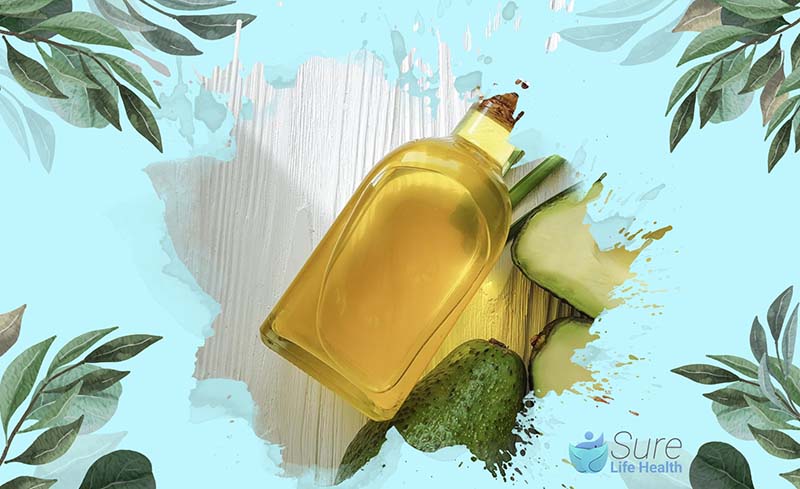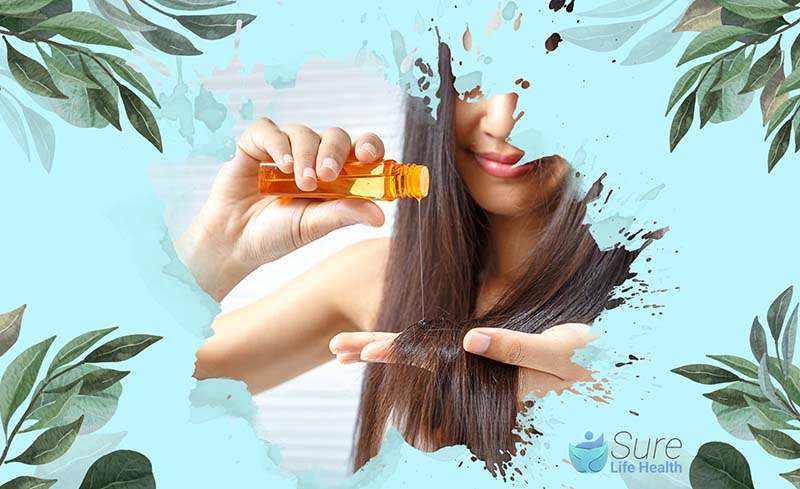Is Avocado Oil Good for Your Hair? Avocado oil is renowned for transforming dry, brittle hair into silky, soft locks, earning accolades as a super hydration booster.
This nutrient-rich oil is ideal for those with dry, coarse hair and dry scalps, offering soothing and moisturizing benefits that can significantly improve hair texture and scalp health.
Is Avocado Oil Good for Hair?
Avocado oil is an exceptional choice for hair care, packed with essential nutrients such as potassium, magnesium, biotin, and antioxidants. These components make avocado oil a powerhouse for enhancing hair health.
It smooths, softens, and repairs hair, helps retain moisture, boosts shine, prevents breakage, and reduces flaking and dryness on the scalp. Avocado oil is particularly beneficial for dry, thick, curly, or natural hair due to its intense moisturizing properties.
Although it doesn’t directly stimulate hair growth, avocado oil fosters a healthy scalp environment that supports optimal growth and minimizes excessive shedding.
Avocado oil is versatile and can be applied as a pre-shampoo treatment, overnight mask, split end remedy, styling agent, or to soften and define curls. Additionally, it serves as an effective detangler, reducing breakage and shielding hair from environmental stressors.

Who Is Avocado Oil Suitable for?
Avocado oil is a versatile treatment beneficial for all hair types due to its ability to deeply penetrate the scalp and hair shaft, making it an excellent remedy for damaged hair. However, it is not suitable for individuals with an avocado allergy.
Those with fine hair should use it sparingly—only a small amount applied to the lengths to avoid weighing down the hair.
6 Benefits of Avocado Oil for Hair
Avocado oil is laden with fatty acids, antioxidants, and vital nutrients such as Vitamins A and E, which are highly beneficial for both hair and skin. Here are six notable benefits:
Avocado Oil Promotes Rapid Hair Growth
Avocado oil contains biotin and vitamin K, which are believed to support healthier, thicker, and longer hair by enhancing scalp circulation. However, it’s important to note that the only clinically proven hair growth treatment contains minoxidil.
Avocado Oil Enhances Hair’s Shine
The minerals in avocado oil, like potassium and magnesium, may help seal cuticle cells. This sealing can make hair appear smoother and shinier.
Avocado Oil Shields Hair from External Damage
Avocado oil is rich in carotenoid antioxidants such as beta-carotene and lutein, which protect the scalp and hair from UV damage and pollutants. Additionally, avocado polyphenols play a crucial role in defending against environmental aggressors.
Avocado Oil Provides Excellent Conditioning
Regular use of avocado oil can moisturize, repair, and strengthen hair strands. It is rich in antioxidants, biotin, minerals, essential fatty acids, and vitamins A, B-5, and E, which help to seal the hair cuticle and prevent breakage.
Avocado Oil Deeply Penetrates the Hair
Avocado oil is known for its non-greasy texture and its ability to penetrate the hair and scalp.
It is exceptionally rich in oleic acid and monounsaturated fats, which allow it to moisturize the hair effectively, rather than merely coating the surface.
Avocado Oil Fosters a Healthier Scalp
Avocado oil is highly effective in stimulating blood flow to the scalp and unclogging blocked follicles, essential for fostering a healthy scalp environment conducive to hair growth. These benefits may also contribute to combating hair loss.
Packed with a blend of vitamins and lipids, avocado oil deeply moisturizes and nourishes the scalp, alleviating dryness and flakiness.
According to hair care expert Murray, a well-nourished scalp means reduced dandruff and flaking, leading to overall healthier hair.

How to Use Avocado Oil Effectively for Hair Care
Avocado oil is a versatile and beneficial addition to any hair care routine. Available in supermarkets, health stores, or online, it can be used in various ways to enhance the health and appearance of your hair.
Scalp Massage
The National Health Service in the United Kingdom highlights that massaging oils into the scalp can moisturize and prevent dandruff by treating a dry, flaky scalp.
Scalp Massage Method:
- Warm a small amount of avocado oil in a bowl, using a jug of hot water or a quick zap in the microwave.
- Part your hair and apply the oil to the scalp with your fingertips or a cotton ball.
- Massage the oil into your scalp using small, circular motions.
- Leave the oil in your hair for a while to absorb before washing it out with your regular shampoo.
Hair Mask
Using avocado as a hair mask can significantly enhance hair’s shine and health due to its rich oil content.
Avocado Hair Mask Recipe:
- Remove the pit and peel from an avocado and mash half in a bowl.
- Mix in 1 egg yolk and 1 tablespoon of honey.
- Apply this mixture to clean, damp hair and leave it on for 30 minutes.
- Rinse thoroughly and dry.
This treatment can be repeated every two weeks as needed.
Conditioner
Avocado oil is an excellent post-shampoo conditioner, especially for those with dry or damaged hair.
Conditioning Method:
- After shampooing, apply a small amount of avocado oil to your fingers.
- Run your fingers through your hair from roots to tips.
- Repeat until your hair is evenly coated with oil.
- Allow the oil to sit for a short period, then rinse with warm water.

Can Avocado Oil Be Used on Hair Overnight?
Avocado oil is a powerhouse of nutrients, packed with vitamins, antioxidants, and essential fatty acids that are crucial for maintaining healthy hair. When applied overnight, avocado oil has the opportunity to deeply penetrate the hair shaft. This prolonged exposure maximizes hydration and aids in repairing damaged strands.
To keep your bedding clean, use a shower cap or wrap your hair in a towel while you sleep. The next morning, wash your hair thoroughly to remove any residual oil. This ensures that your hair remains light and voluminous.
For those trying overnight avocado oil treatment for the first time, consider conducting a patch test. Apply the oil to a small section of hair to observe how your hair responds before committing to a full scalp application.
How Often Can I Use Avocado Oil on My Hair?
If you have very dry hair, you can safely use avocado oil in small amounts up to twice a day, both in the morning and at night. This frequent application helps to maintain hydration and nourish your hair.
For those with fine or greasy hair, it’s best to limit the use of avocado oil to 2-3 times a week. After each treatment, be sure to shampoo your hair thoroughly to remove any excess oil. This prevents your hair from becoming overly greasy and maintains a balanced look.
Side Effects of Using Avocado Oil for Hair
If you have an allergy or sensitivity to avocado, it’s crucial to steer clear of using avocado oil internally or externally, as it could trigger an allergic reaction. Prior to applying avocado oil to your hair and scalp, conducting a patch test on a small skin area is recommended.
Using an excessive amount of avocado oil can result in your hair feeling excessively greasy. Should this occur, thoroughly washing it out with a mild shampoo until the surplus oil is eliminated is advisable.
While avocado oil may not completely reverse significant hair damage, it could aid in preventing further breakage by providing lubrication to the hair strands. However, it’s important to note that it cannot remedy major damage inflicted by bleaching, heat treatments, or hair relaxing procedures.
Avocado oil is typically safe for use, but individuals allergic to avocados should consult their healthcare provider before incorporating it into their hair care routine. Conducting a patch test beforehand can help identify and eliminate any potential allergic reactions prior to applying it to your entire head of hair.
FAQs
Is avocado oil good for low porosity hair?
Yes, Avocado Oil is excellent for low porosity hair due to its light, fast-absorbing nature. It’s particularly effective for individuals with medium to low porosity and density hair types.
How to use avocado and egg for hair growth
To utilize avocado and egg for hair growth, whisk the egg until frothy, mix in coconut oil, and add mashed avocado. Apply this mask to towel-dried hair from roots to ends, cover with a plastic cap, and let it sit for 10 to 20 minutes.
Rinse with lukewarm or cool water, shampoo, and condition as usual. After drying, your hair should feel strengthened and moisturized, thanks to the avocado and egg yolk combination.
Conclusion
In summary, “Is Avocado Oil Good for Your Hair?” highlights the significant benefits of avocado oil for improving hair health and appearance. This nutrient-rich oil offers deep conditioning, enhances shine, and protects hair from damage, making it ideal for dry or damaged hair.
While not a standalone solution for hair growth, avocado oil promotes a healthier scalp environment conducive to hair health. Always perform a patch test if you have allergies, but generally, avocado oil is a safe and effective addition to hair care routines for those seeking natural, nourishing treatments.
Be sure to explore more insightful blogs from Sure Life Health, where we continue to shed light on the latest trends and breakthroughs in health and wellness.
Professor Gaye Cunnane, PhD, MB, FRCPI
As the Director of Health and Wellbeing at RCPI, Professor Gaye Cunnane is at the helm of initiatives aimed at enhancing the health and well-being of RCPI Trainers and Trainees. Her role extends beyond administration; she is also a respected clinical professor of rheumatology and a consultant rheumatologist at Trinity College Dublin (TCD) and St James’s Hospital. Prof. Cunnane’s medical journey began at TCD, where she graduated from medical school, and her path has been marked by both clinical and academic excellence.
After completing her basic clinical training in medicine, she embarked on PhD studies at University College Dublin and St Vincent’s University Hospital. Her research during this period was focused on prognostic markers in early inflammatory arthritis, a project that saw her collaborating with esteemed universities across Europe, including in Switzerland, The Netherlands, the UK, and Sweden.
Prof. Cunnane’s career took her to the University of California, San Francisco, where she spent three years delving into research on new treatments for lupus. Her academic prowess led her to the University of Leeds in 2001 as a senior lecturer, before returning to Ireland in 2003 to assume her current roles. She has also served as the National Specialty Director for Rheumatology training in Ireland, Programme Director for Basic Specialist Training with RCPI, and as a past President of the Irish Society for Rheumatology.
PUBLISHED ARTICLES
“Rheumatic disease differentiation using immunoglobulin G sugar printing by high-density electrophoresis”: Published in The Journal of Rheumatology, this study reflects her in-depth investigation into rheumatic diseases.
“Benefits of exercise in patients with rheumatoid arthritis: a randomized controlled trial”: This research work, highlighting the positive impact of exercise on rheumatoid arthritis, underscores Prof. Cunnane’s dedication to practical, patient-centered research.
Additionally, Prof. Cunnane has made notable contributions to the Annals of the Rheumatic Diseases, discussing early referral, diagnosis, and treatment of rheumatoid arthritis. She has also been involved in a study on the NCBI platform investigating exercise benefits in rheumatoid arthritis patients.
Professor Gaye Cunnane’s career is a testament to her commitment to improving patient outcomes in rheumatology through rigorous research, clinical excellence, and dedicated teaching. Her work continues to influence the field of rheumatology, both in Ireland and internationally.

